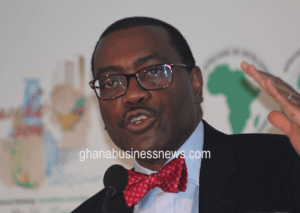Lusaka wakes up to AfDB Annual Meetings

It’s not often that Lusaka, the Zambian capital is in the news. It is probably one of the quiet cities on the continent, except for few incidents and occasions, including the successes of its national football team, not much is heard about the city.
Recently, though, the city shocked the world with incidents of xenophobic attacks. Lusaka? Yes. Xenophobia flared in Lusaka, and many people around the world were shocked! Zambians are not particularly known for violence.
Meanwhile, it is an election year, and as one enters the country, one would see the evidence of campaigning, while it’s not clear yet who would win, Edgar Lungu, the sitting president is likely to win as the case is in most African countries where incumbents don’t easily lose elections, especially after their first term.
Somewhat, quiet Lusaka has woken up to a major event. The city is literally swarmed by delegates attending the 51st Annual Meetings of the African Development Bank (AfBD), and there are nearly 4000 of them from all over the world, but mostly from Africa.
The city is very cold around this time – it’s winter in Zambia, with temperatures around 10 and 12 degrees Celsius – most delegates came unprepared for the cold.
The Mulungushi International Conference Centre, also considered one of the largest conference facilities in Africa is hosting the meetings.
On the table for discussion are Africa’s energy and climate change challenges. Africa’s contribution to climate change is insignificant compared to other continents, but Africa would bare the hardest burden if global temperature rises!
There is also shortage of energy to light homes, streets and to power industry.
According to the World Bank some 25 countries in sub-Saharan Africa are facing a crisis evidenced by rolling blackouts.
At the beginning of 2016, over 645 million Africans – some two-thirds of the people on the continent – had no access to energy, and unless something is done about the situation, this would continue till 2030.
The AfDB, however says in addressing the energy shortage, it has so far invested about $100 million in renewable energy, and beyond financing, the Bank is helping African countries to figure out their own energy mix.
Meanwhile, as the meetings go on, Zambia’s own energy crisis is lurking malevolently – just like other African countries, requiring urgent attention. The country is currently doing what has become common in Africa and most developing countries – load shedding.
A landlocked country with a 560 MW power deficit, Zambia’s demand for electricity grows 200MW annually.
Africa has many challenges, and while most people argue that the continent’s political class is its bane, they are in Lusaka in their numbers with technocrats from around the world and the continent to discuss Africa’s problems.
But like the president of the AfDB, Dr. Akinwumi Adesina said during a press conference Monday morning, Africa must move faster like the leopard, if the continent wants to tackle the challenges confronting its people.
He also pointed out anecdotally that in Africa there are too many ‘pilot projects’, but he thought it was time that Africa moves beyond ‘pilots’ to ‘flying planes’.
Only five years ago the mantra was ‘Africa rising’, but a new development index by the Economic Commission for Africa (ECA) finds that the continent is poorer now than it was 20 years ago, while trends in the rest of the world show an improvement in poverty levels around the same time.
The African Social Development Index (ASDI), a tool developed by the ECA finds that poverty, fueled by inequality, remains the single most significant driver of human exclusion in Africa.
But it’s common to hear a few examples of success being trumpeted – that helps to sooth the hapless and serve as placebo. Recently, former Nigerian President, Goodluck Jonathan told Nigerians to stop accusing him of failure because at least he left them with one billionaire – Dangote!
As Lusaka creates more room to host its guests, hopefully, at the end of the meetings on Friday May 27, the decisions reached would ginger the continent to hopefully pep up itself and start running like the leopard.
By Emmanuel K. Dogbevi, in Lusaka, Zambia
Email: edogbevi@gmail.com
